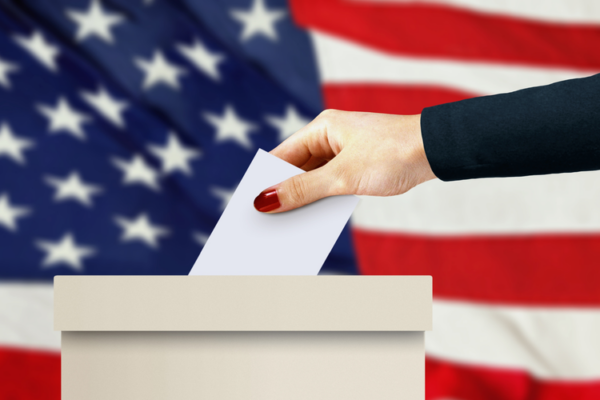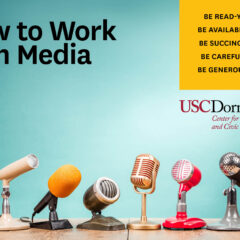I was not surprised when the editors of America told me that their recent survey of American Catholic women indicated that Catholic teaching didn’t influence women’s votes. Sociologists and polls often show that countless issues beyond religion influence people’s voting decisions (think, “It’s the economy, stupid”).
Nonetheless, America’s survey presented the opportunity to talk to people about how they make their voting decisions, and what, if any, role their faith played in those decisions.
Click here to read the full article in America.
Liberal and conservative, Catholic women told me that it was personal experiences and relationships that shaped their politics rather than the church. Women shared with me how their own pregnancies—and those of friends and fellow parishioners—led them to be pro-choice, even while being personally pro-life. They shared how coming from an immigrant family and military family influenced their views on migration and war. A lesbian woman shared how her personal journey made her disregard the church’s politics.
It’s rare to have such convergence in the reporting process, but after I had done a number of interviews with ordinary women, sociologist Michele Dillon told me that this is exactly what she would expect.
Does faith play no role in politics then?
I also appreciated Meghan Clark’s point of view as a moral theologian, which was echoed by Sister Mary Johnson, a professor of sociology and religious studies.
Part of the lack of connection between church teaching and personal experience for many Catholics, Ms. Clark said, comes from underestimating “what Catholicism means to who we are.”
“Even when my personal experience contradicts something that is official church teaching, it’s often rooted in a very deeply lived Catholic reality about who we are as persons, what it means to be made in the image of God, what it means to treat people with dignity,” she said. The church’s challenge today, she added, is to help people integrate their faith into how they interpret their experiences.
In other words, the very experiences that Catholic women say shape their politics may be colored by their Catholic faith.
It was clear both in the survey and the interviews that few Catholic women really understand either this more subtle connection between their lives and faith and politics, or in the church’s official teachings. Another excerpt:
The term Catholic social teaching does have a specific meaning. “Catholic social teaching refers to Roman Catholic reflections on contemporary social, political and economic realities, from the industrial revolution to today,” said Meghan J. Clark, an associate professor of moral theology at St. John’s University in New York and a member of America’s board of directors. Starting with Pope Leo XIII’s encyclical letter “Rerum Novarum” in 1891, encyclicals became the way for popes to provide guidance on “how to live the Gospel in an industrialized, globalized reality,” she said.
The average Catholic, however, rarely reads encyclicals. Even with “Laudato Si’,” Pope Francis’ encyclical on the environment, polls showed that only a quarter of Catholics were aware of the encyclical a year after it was released, Ms. Dillon said.
“Despite all the publicity and claims in the media of the Francis effect on environmental awareness…in terms of changing Catholics’ opinions about climate change or what to do about climate change, it’s minimal at best,” she said.
Indeed, a recent Religion News Service article reported that support for environmental issues has been flat among Christians over the past 25 years, and that ideology is a better predictor than religion in knowing whether somebody would support environmental issues or not.
Even though Catholic social teaching on the rights of workers, care for the poor, the environment, etc. tend to be politically liberal, Republican women in the America survey were more than two times more likely to report that Catholic social teaching influences their vote than Democrats. Even some Democrats I spoke with thought Catholic social teaching was about abortion and sexuality—issues that they disagreed with the church on.
Most surprising to me was the finding that Catholic women might play a significant role in a swing back to the Democrats in 2018. Still, as Dillon pointed out, it’s impossible to talk about the “Catholic vote” as one monolith anymore.
As I mentioned on America’s podcast, the experts agreed that it’s critical for the Catholic Church that women—the backbone of the church—feel heard and can connect their faith and politics. Yet, from my conversations, it’s also clear that not all Catholics agree on what they want to hear from the church about politics, if anything.
Megan Sweas is the editor and director of communications with the USC Center for Religion and Civic Culture.





